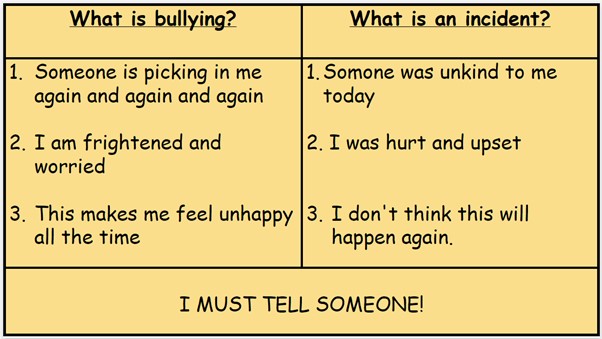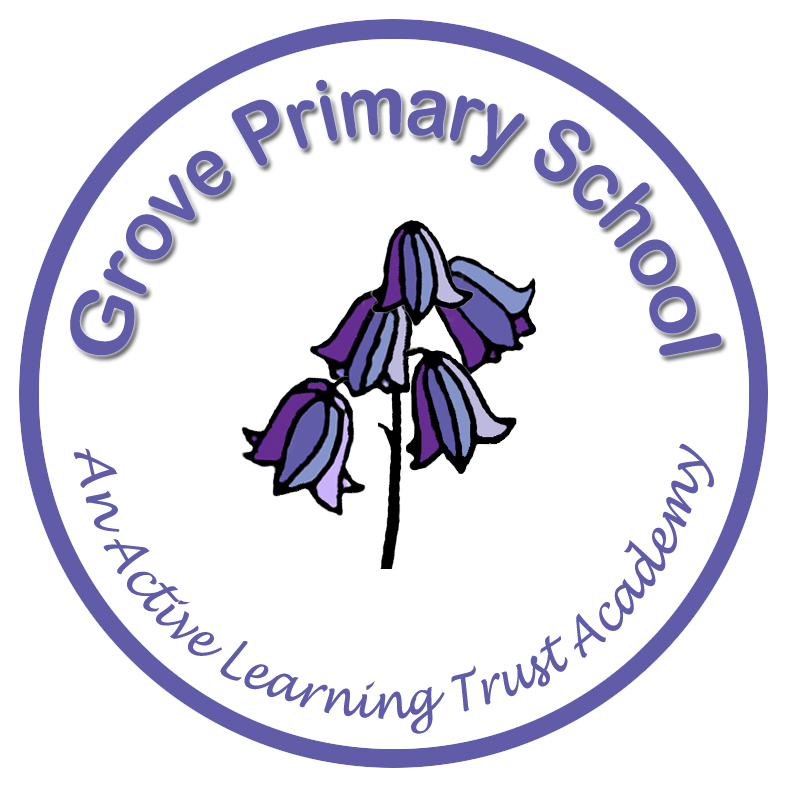Anti-Bullying
Our Approach to Bullying
At Grove, we believe that schools should be safe places to learn and that all members of the school community should be respectful to one another.

What is bullying?
- Bullying is unfair.
- Bullying is deliberate.
- Bullying is repeated over a period of time.
Young children sometimes fall out with friends or say unkind things when they are angry. We explain to children that this is different from bullying. We call these situations incidents of bad behaviour.
What is an incident of bad behaviour?
- It can be meant to hurt.
- It can be an accident.
- It can be a thoughtless action.
- It is an isolated case.
Bullying or an incident of bad behaviour may include:
- name-calling;
- teasing;
- physically hurtful behaviour;
- verbally hurtful behaviour;
- threatening behaviour;
- taking and/or breaking another child’s possessions;
- excluding.
The main difference is that bullying is persistent and targeted over a period of time. An incident of anti-social behaviour is an isolated event.
All staff at Grove Primary School are aware of the importance of being proactive in dealing with such incidents. We address bullying by trying to prevent it from happening in the first place and by tackling it consistently, fairly and effectively when it does.
All staff at Grove Primary School will endeavour to:
- establish what is bullying and what is an incident;
- prevent bullying through consistent strategies;
- deal effectively with bullying if it occurs;
- promote our positive behaviour policy;
- teach children that bullying will not be tolerated/accepted.
The following strategies have been shared and agreed with staff in order to address the issue of bullying:
- Ensure the playground is monitored at break times, children are never allowed on the playground unsupervised.
- Toilets, corridors and cloakrooms are monitored during break times.
- Be aware of children leaving the classrooms during lessons.
- Be watchful of all children, get to know them and be aware of any change in behaviour.
- Records of incidents reported on MyConcern.
- Immediate removal from the playground/classroom of any child involved in a serious incident.
- Headteacher and Assistant Head to take the lead role in resolving on-going problems.
- Parents of both bully and victim to be involved.
- PSHE and RE lesson times and assemblies used to address aspects of bullying.
- Children are taught the difference between targeted bullying and incidents of bad behaviour.
- Children are encouraged to express feelings and opinions.
- LISTEN when children talk about incidents or issues, allow all children to speak calmly.
- BE ASSERTIVE when dealing with bullying but not aggressive or hostile (this will only add to the bully’s ammunition).
- Most importantly encourage all children and adults to TELL SOMEONE, THEN TELL THEM AGAIN
Each year, we dedicate a week to unpicking the definition of bullying and how we can treat each other with respect. In our assemblies and PSHE lessons, we learn about being kind to each other and the importance of respect and care.

